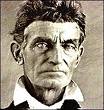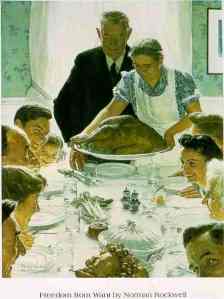Other than hearing them on HBO’s “The Sopranos,” nicknames that overrode a person’s given name seem to have disappeared from mainstream American life. Growing up in a blue-collar, city neighborhood of the 1940s and1950s, I remember nicknames as commonplace.
The essence of most nicknames was that they were almost always off-handedly bestowed, never chosen by the carrier. Nicknames that could stick to a person for a lifetime usually originated in throw-away lines, offered as casual asides. Most recipients of an adhering nickname, after some futile resistance, would reluctantly acquiesce to their new identities. There are men today in their seventies who, were I to meet then on the street or were their names to come up in conversation, would be greeted or referred to reflexively in the often inexplicable nominatives of their schoolyard or corner lounging days. These were not the benign names of contemporary suburbia. There were no cutesy, parentally endowed “Chips” or “Skips.” These were names like “Jiggs,” “Ozzie” and “Nuggie,” likewise “Fat Sam” and “Fat Ralph,” who incidentally was not fat.
We had a “Buzz,” more than one “Ace,” a “Duke” and a “Babe.” There was a “Lips,” a “Joe Guinea” and even a “B. O.,” who smelled no worse that the rest of us. “Roughhouse Ray” was a guy congenitally incapable of putting up his dukes, and “Bones” approached the obese. I knew a “Mouse,” a “Chickie,” a “Pidgie,” a “Jug” and a “Gobbler.” Where that last one came from, I have no idea. “Bull Moose” was an imposingly muscular retarded guy who wandered the neighborhood in silence, and the name “Dippy John” was the price that a kid with minor birth defects paid to belong on the corners. “Dippy John” was in no way “dippy.”
I was present when a co-worker told a low-grade joke about a gay attack dog barking “Bowsie-Wowsie.” From that day on he was “The Bowser,” and none of his resentful objections were to any avail.
A cousin of mine got stuck at the age of seven with the name of his radio adventure hero “Brick Bradford.” The full name morphed to “Bricky” and is still answered to by a man now in his sixties. Fifty years ago, another cousin married a plus six-foot sailor who continues to get “Stretch.” An eighth-grade classmate, whose given name I no longer recall, was tagged with “Uncle Miltie,” and another has carried “Fuzzy” into seniorhood. While nicknames were a guy thing, I can recall a “Bubbles,” a “Cookie” and even a “Jukey.”
A kid named Joe lived across the street and it was my own father who, referencing a newspaper ad for a Yiddish theater production of the play “Yostle the Bum,” hung that name on Joe. The name took instantly and permanently, contracting quickly to just “Yostle” and from there to “Yos.” I doubt that hardly anyone from the neighborhood remembers him as anything other than Joe “Yos.”
For the record, I managed to elude getting a nickname.


 Driving through cold rain and heavy traffic to pick up some lunch, I overtook an old barge of a car waddling along doing about twenty-five in what was a forty-five zone. A disheveled early 1980s station wagon, its flashers were on and its read-end was plastered with “Right to Life” stickers. As a card-carrying subscriber to The New Yorker and the NYRB, my opinions can be largely predictable. I shook my head as I sped past the crawling low- end heap and what I reflexively assumed was its yahoo driver.
Driving through cold rain and heavy traffic to pick up some lunch, I overtook an old barge of a car waddling along doing about twenty-five in what was a forty-five zone. A disheveled early 1980s station wagon, its flashers were on and its read-end was plastered with “Right to Life” stickers. As a card-carrying subscriber to The New Yorker and the NYRB, my opinions can be largely predictable. I shook my head as I sped past the crawling low- end heap and what I reflexively assumed was its yahoo driver.  In coming to grips with an issue as disturbing as abortion, the most powerful touchstone against any kind of certainty could be the case of John Brown, the anti-slavery John Brown of Russell Banks’ novel “Cloudsplitter,” the absolute fanatic Pottawatomie Brown, the unrepentant murderer Osawatomie Brown. Deemed a deranged psychotic by most of his fellow Americans and executed by his government, poor, mad John Brown, in his time and in his place, just may have been the only sane man in The United States of America. His example is one to give pause to received, hasty or unexamined opinions.
In coming to grips with an issue as disturbing as abortion, the most powerful touchstone against any kind of certainty could be the case of John Brown, the anti-slavery John Brown of Russell Banks’ novel “Cloudsplitter,” the absolute fanatic Pottawatomie Brown, the unrepentant murderer Osawatomie Brown. Deemed a deranged psychotic by most of his fellow Americans and executed by his government, poor, mad John Brown, in his time and in his place, just may have been the only sane man in The United States of America. His example is one to give pause to received, hasty or unexamined opinions.  On finding myself alone at a mealtime, I’d reach for something to read while eating. It was multi-tasking, something I still considered a virtue. Too often after a mealtime spent reading, I could barely recall what I had eaten.
On finding myself alone at a mealtime, I’d reach for something to read while eating. It was multi-tasking, something I still considered a virtue. Too often after a mealtime spent reading, I could barely recall what I had eaten.  Over lunch today, glazing the eyes of my wife, I went on at length, as I am usually wont to do, this time on the subject of Shredded Wheat and my tendencies toward what I’ve come to call “Essentialism.”
Over lunch today, glazing the eyes of my wife, I went on at length, as I am usually wont to do, this time on the subject of Shredded Wheat and my tendencies toward what I’ve come to call “Essentialism.”